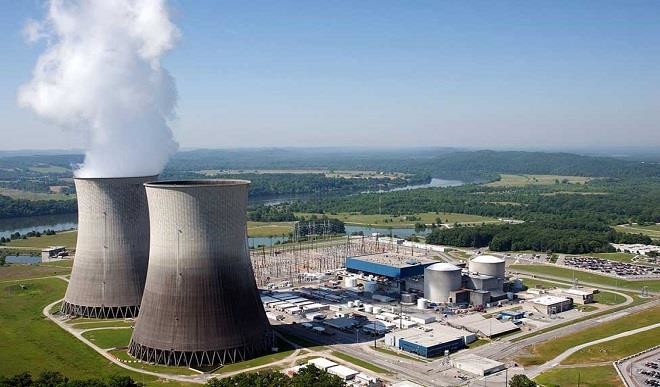Font size:
Print
Foreign Stakes in Nuclear Power Plants
Government Proposing to Increase FDI in Nuclear Sector
Context: India is poised to make a historic shift in its nuclear energy policy, with the government considering a proposal to allow foreign companies to own up to 49% stakes in the country’s nuclear power plants.

More on News
- This move, if approved, would mark the first time foreign investment is permitted in a sector that has been tightly controlled by the state since its inception.
Policy Shift Driven by Climate and Energy Needs
- The push for reform comes as India intensifies efforts to transition from coal-based power generation to cleaner energy sources, aiming to reduce carbon emissions and meet surging electricity demand.
- Currently, nuclear energy accounts for just over 8 gigawatts (GW), or about 2% of India’s total installed electricity capacity.
- The government’s ambitious target is to increase nuclear capacity twelvefold to 100 GW by 2047.
Key Features of the Proposal
- Foreign Ownership Cap: Foreign enterprises could acquire up to 49% equity in nuclear power plants, but all such investments would still require prior government approval and would not be automatically permitted.
- Legal Amendments: The government is preparing amendments to the Atomic Energy Act of 1960 and the Civil Liability for Nuclear Damage Act of 2010.
- These changes, expected to be tabled in the July monsoon session of Parliament, would also allow private companies-both domestic and foreign-to build, own, and operate nuclear power plants, and to mine and manufacture atomic fuel.
- Private Sector Entry: Alongside foreign investment, major Indian conglomerates such as Reliance Industries, Tata Power, Adani Power, and Vedanta are in discussions to invest an estimated $26 billion in the nuclear sector.
- International Interest: Global nuclear giants including Westinghouse Electric, GE-Hitachi, Electricité de France (EDF), and Russia’s Rosatom have expressed interest in participating as technology partners, suppliers, and service providers.
Background and Barriers
- India’s nuclear sector has historically been off-limits to both foreign and private domestic investment due to national security concerns and strict liability laws.
- Although a landmark civil nuclear agreement with the United States in 2008 paved the way for multi-billion-dollar deals, foreign companies remained hesitant due to the risk of unlimited liability in the event of a nuclear accident.
- The proposed amendments aim to address these concerns, potentially unlocking long-stalled international collaborations.
Implications and Next Steps
- Boost to Clean Energy: Expanding nuclear capacity is seen as essential for India to meet its climate goals and ensure reliable power, especially during periods when solar and wind generation are low.
- Geopolitical and Economic Impact: The policy shift could revive tariff negotiations and nuclear deals with countries like the United States, while also attracting significant foreign capital and technology.
- Regulatory Oversight: Despite liberalisation, the government will retain tight control, with all foreign investments subject to approval and oversight by relevant ministries and the Atomic Energy Department.


